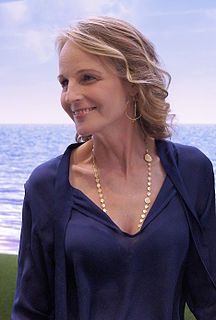A Quote by Ralph Waldo Emerson
There is a mortifying experience in particular, which does not fail to wreak itself also in the general history; I mean "the foolish face of praise," the forced smile which we put on in company where we do not feel at ease, in answer to conversation which does not interest us. The muscles, not spontaneously moved but moved, by a low usurping wilfulness, grow tight about the outline of the face, with the most disagreeable sensation.
Related Quotes
When the time comes to you at which you will be forced at last to utter the speech which has lain at the center of your soul for years, which you have, all that time, idiot-like, been saying over and over, you'll not talk about the joy of words. I saw well why the gods do not speak to us openly, nor let us answer. Till that word can be dug out of us, why should they hear the babble that we think we mean? How can they meet us face to face till we have faces?
A free mind is one which is untroubled and unfettered by anything, which has not bound its best part to any particular manner of being or worship and which does not seek its own interest in anything but is always immersed in God's most precious will. . . . There is no work which men and women can perform, however small, which does not draw from this its power and strength.
All soul is immortal. For that which is always in movement is immortal; that which moves something else, and is moved by something else, in ceasing from movement ceases from living. So only that which moves itself, because it does not abandon itself, never stops moving. But it is also source and first principle of movement for the other things which move.
What an abyss of uncertainty, whenever the mind feels overtaken by itself; when it, the seeker, is at the same time the dark region through which it must go seeking and where all its equipment will avail it nothing. Seek? More than that: create. It is face to face with something which does not yet exist, which it alone can make actual, which it alone can bring into the light of day.
More than by fear of going astray, my hope is that we will be moved by the fear of remaining shut up within structures which give us a false sense of security, within rules which make us harsh judges, within habits which make us feel safe, while at our door people are starving and Jesus does not tire of saying to us: 'Give them something to eat.'
My interest as a writer is not in reflecting actual human speech, which, of course, does not occur in sentences and is totally undiagrammable. My interest is in trying to reflect the reality of experience - how we feel when we talk to each other, how we feel when we're engaging with questions that interest us.
The word "Blue" does not mean the sensation caused by a gentian on the human eye; but it means the power of producing that sensation: and this power is always there, in the thing, whether we are there to experience it or not, and would remain there though there were not a man left on the face of the earth.
A person is wise who does not only know what is right and wrong, but also he knows very well his own power not to do something wrong. He just does not do it. Wisdom is a complete power within ourselves by which we try nothing. It just spontaneously works through us and we do things which are proper and right.
The asking and the answering which history provides may help us to understand, even to frame, the logic of experience to which we shall submit. History cannot give us a program for the future, but it can give us a fuller understanding of ourselves, and of our common humanity, so that we can better face the future.
There was very little about her face and figure that was in any way remarkable, but it was the sort of face which, when animated by conversation or laughter, is completely transformed. She had a lovely disposition, a quick mind and a fondness for the comical. She was always very ready to smile and, since a smile is the most becoming ornament that any lady can wear, she had been known upon occasion to outshine women who were acknowledged beauties in three countries.
Is it wholly fantastic to admit the possibility that Nature herself strove toward what we call beauty? Face to face with any one of the elaborate flowers which man's cultivation has had nothing to do with, it does not seem fantastic to me. We put survival first. But when we have a margin of safety left over, we expend it in the search for the beautiful. Who can say that Nature does not do the same?









































